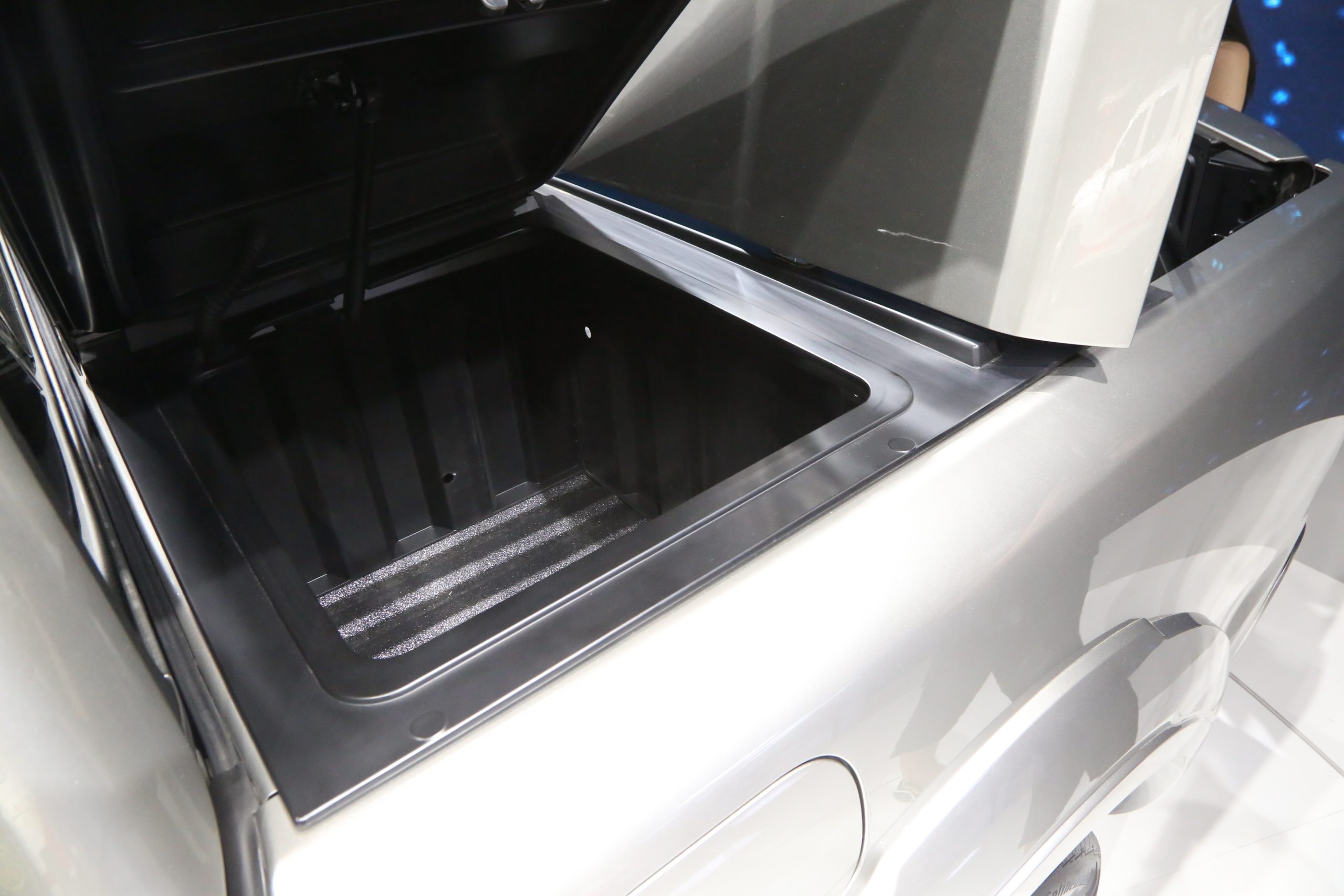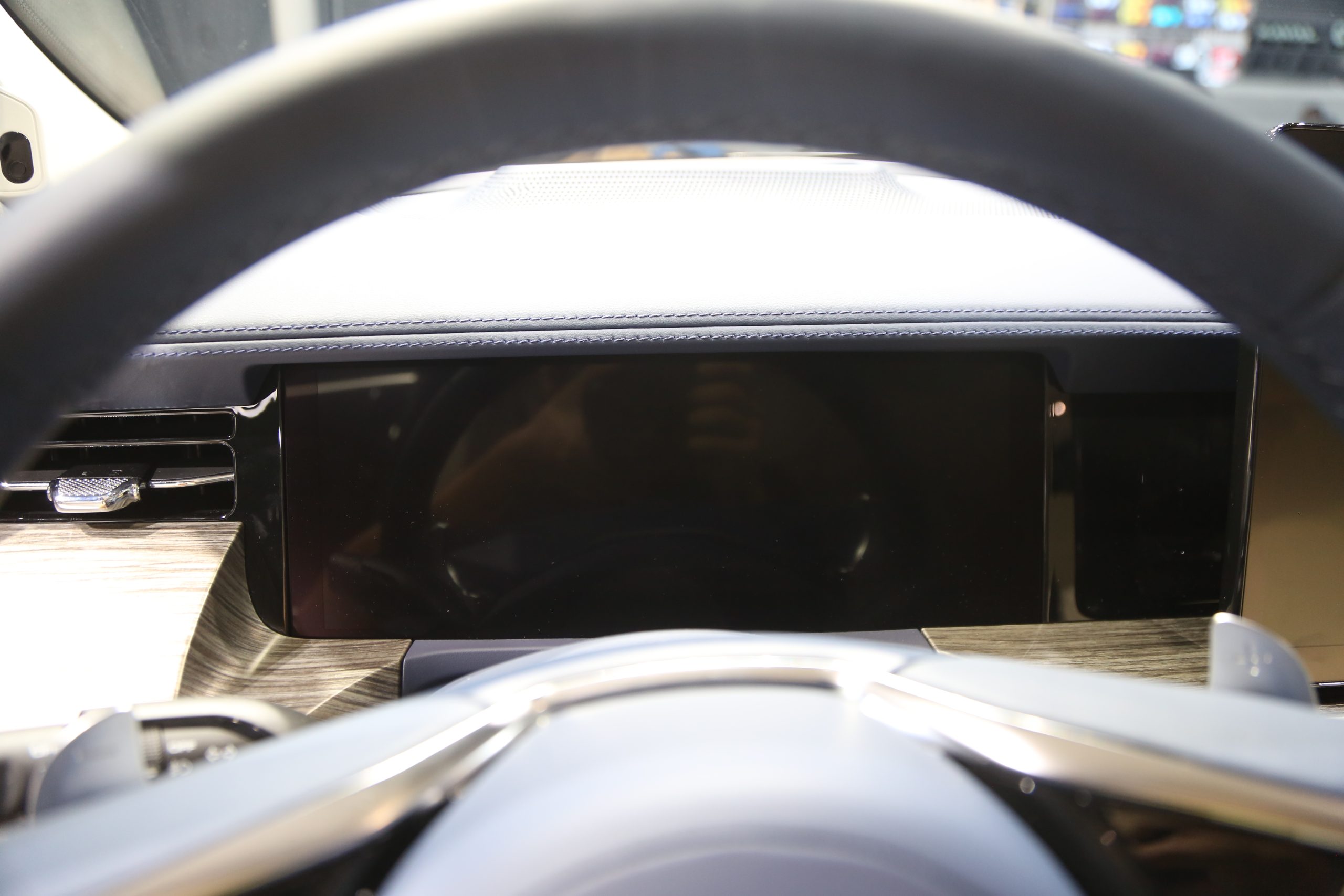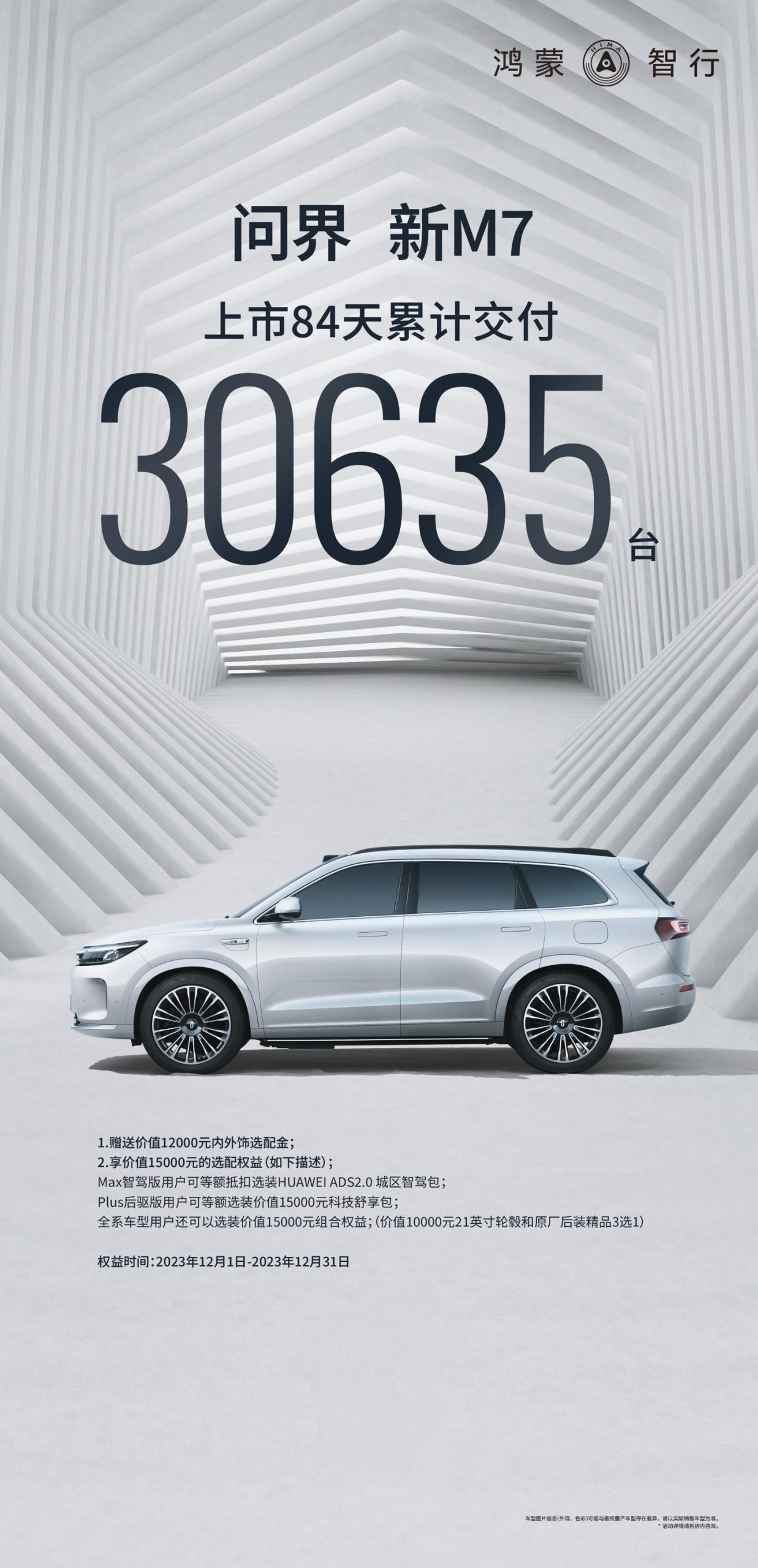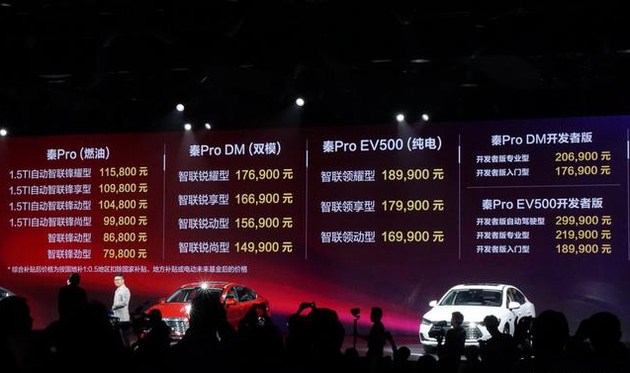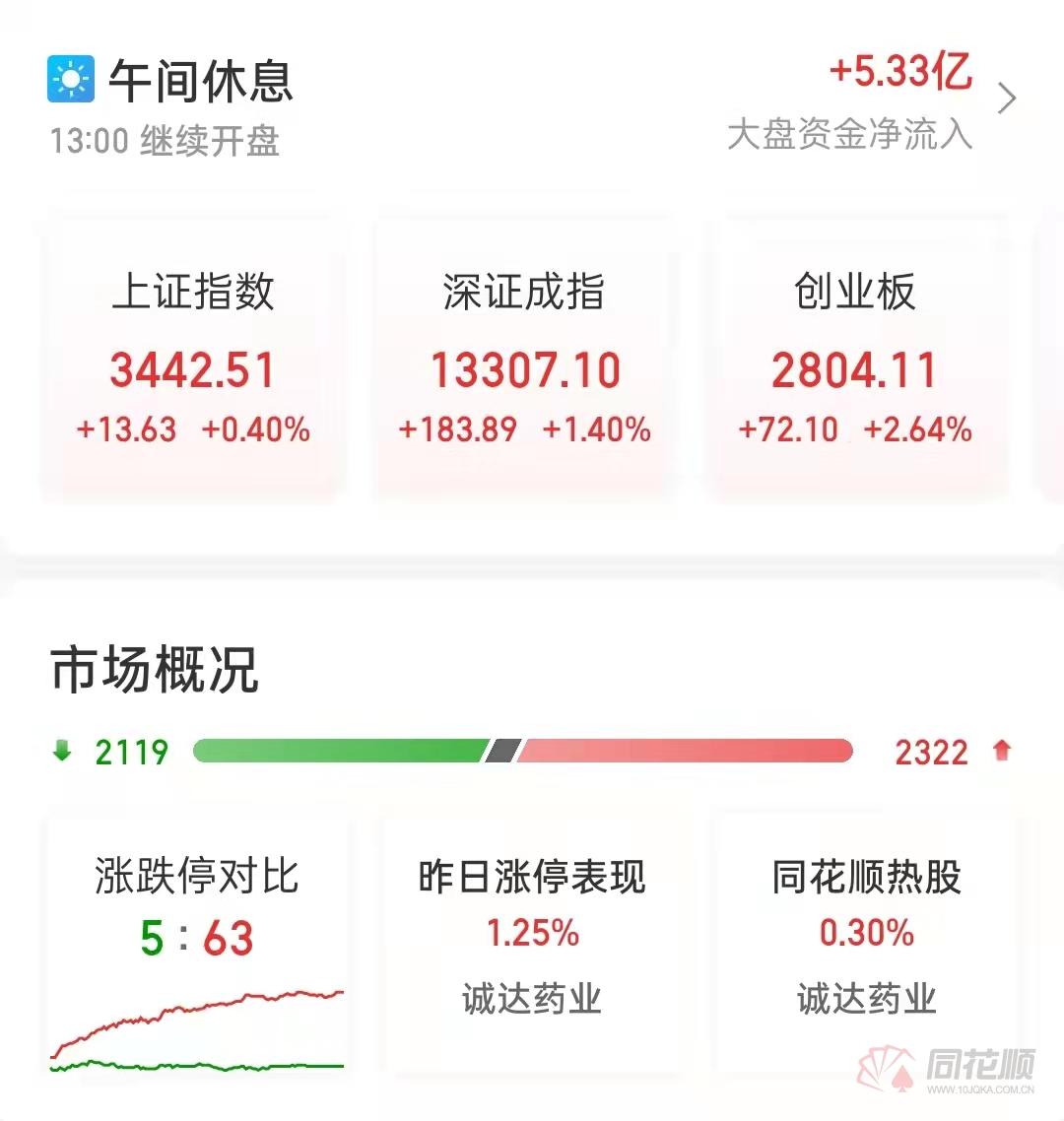
National Convention and Exhibition Center (Shanghai) West Entrance. (Xinhua News Agency)
Cambodia shows "development and opportunity"

The shape design of the Cambodia National Pavilion originated from the Royal Palace in Cambodia, focusing on the traditional culture and special commodities of the Khmer nation. Economic Daily-China Economic Net reporter Zhang Bao for the picture
The National Pavilion of Cambodia has strong national cultural characteristics, and the whole pavilion "copied" pictures of the Royal Palace of Cambodia, Angkor Wat and other famous temples in Cambodia. On the big screen in the museum, there is a promotional film on Cambodia’s trade, economy and tourism development.
"Cambodia hopes to show traditional Khmer culture and special commodities, introduce the investment, trade and tourism environment, and invite countries to share cooperation opportunities." According to China’s embassy in Cambodia, business counselor Wu Guoquan, the first China International Import Expo(CIIE) brought Cambodia a full harvest, and China-Cambodia economic and trade cooperation was tangible and fruitful. In this year’s China International Import Expo(CIIE), Cambodian people from all walks of life are more enthusiastic. The special products such as cassava, pepper, cashew nuts, palm sugar, fish sauce, coffee and handicrafts displayed in the museum have attracted many visitors to buy them.
In addition to specialty products, Cambodia focused on Cambodia’s trade and economy, Khmer culture, tourism and investment projects this year. A poster attracted the reporter’s attention. Under the words "Development and Opportunity", there was a picture of a vast blue sea with pleasant scenery. Gao Chunhui, director of the operation center of Tianjin Youlian Investment Development Group Co., Ltd., told the reporter that the group has been in Cambodia for 12 years. The Cambodia-China Comprehensive Investment Development Experimental Zone and Cambodia Qixinghai Tourism and Holiday Zone written on the poster are one of the 11 key cooperation projects for China-Cambodia capacity investment jointly signed by China and Cambodia in October 2016.
Gao Chunhui said that the group hopes to use China International Import Expo(CIIE) to attract foreign partners to invest in Cambodia. Cambodia has the best coastline, precious mangroves, good business environment, friendly people and sufficient labor force. "Over the past three days, many companies have come to dock and are interested in investing in tourism and other industries in Cambodia. We feel very rewarding. Later, we will continue to dock, hoping that they will visit Cambodia and share ‘ Development and opportunity ’ 。” (Economic Daily-China Economic Net reporter Shen Zezhen Zhang Bao)
Jamaican eagerly awaits China’s investment.
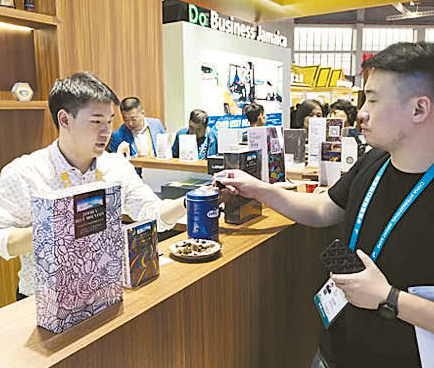
Visitors taste Jamaica’s Blue Mountain Coffee. Economic Daily-China Economic Net reporter Zhou Mingyang photo
Jamaican was one of the 15 guest countries in the second China International Import Expo(CIIE) and participated in China International Import Expo(CIIE) for the second time. The Jamaican National Pavilion shows its achievements in agriculture, tourism, mining, logistics and other fields to consumers in China, expecting to reach deeper and wider cooperation with China.
Jamaica is located in the western part of the Caribbean, with superior geographical position, rich natural resources and mineral resources, good climatic conditions, and the port with the highest throughput in the Caribbean. This year, the theme of the Jamaica Pavilion is "Doing business in Jamaica", and "Investment, trade and connectivity" are the three key words of Jamaica’s participation. I hope that by participating in China International Import Expo(CIIE), more people will know about Jamaica’s business environment and investment environment and invest in Jamaica.
The front of the "bar" in the Jamaica Pavilion is very lively, and the audience waiting to taste Jamaica’s blue mountain coffee and rum lined up in a long line. The whole Jamaica Pavilion is full of attractive coffee and wine. Ni Kaolian, general manager of Nijie Business Consulting (Shanghai) Co., Ltd. is based in Shanghai and is responsible for investment consulting, product procurement, tourism information consulting and cultural exchange between China and Jamaica. She told reporters that participating in the first China International Import Expo(CIIE) made more people begin to understand and pay attention to Jamaica.
This year’s China International Import Expo(CIIE), Jamaica brought many high-quality products, such as lobster, coffee, tea, rum, sauces and so on, which are popular among China consumers. "Frozen lobsters from Jamaica can already be bought in China. This year, we will launch a fresh lobster business, and China consumers can taste fresher Jamaican lobsters."
Tourism is the key project promoted by Jamaica this time. Jamaica has beautiful beaches. Visitors can experience surfing, rowing, diving and other marine projects, and eat delicious seafood and exquisite dishes. Visitors can also experience "farmhouse music", be a "Caribbean farmer", harvest sugar cane like locals, make rum by themselves, and even ride horses in the sea. More importantly, Jamaica’s culture is diverse. Being in Jamaica, you can appreciate the integrated culture of the whole Caribbean.
Ni Kaolian said that Jamaica has vast farmland, developed agricultural and processing infrastructure, abundant low-cost labor and huge market opportunities. With the expansion of Panama Canal, Jamaica’s logistics industry has developed rapidly. "Jamaica is a good place to do business. Welcome more China friends to visit Jamaica!" (Economic Daily-China Economic Net reporter Zhou Mingyang)
India expands bigger export market

The India Pavilion displays the development achievements in the fields of service trade, science and technology in India. Economic Daily-China Economic Net reporter Zhu Lin photo
Stepping into the National Pavilion of India, the colors dominated by white and blue give people a fresh and quiet feeling. The person in charge told the reporter that China people are familiar with India’s long history, rich culture, special cuisine and colorful art, but what they want to show at the China International Import Expo(CIIE) is an India that is changing with each passing day and full of infinite possibilities.
"Indian vaccines are exported to 150 countries and regions around the world; India has become a global small car manufacturing center; India ranks fifth in adopting automation technology on a large scale … …” Indian Minister of Commerce Anup Wadhawan said in a message to China International Import Expo(CIIE) that China International Import Expo(CIIE) provides a unique opportunity for Indian exporters to explore new opportunities and further expand their trade footprint and market share.
In the museum, India displayed its development achievements in service trade, tourism, culture, food and other major industries and science and technology. Sharad Kumar Saraf, President of the Federation of Indian Export Organizations, said that China International Import Expo(CIIE) is an ideal platform for inviting China enterprises to invest in India.
"By 2028, India will become the third largest economy in the world" — — This is a propaganda slogan in the India Pavilion. The head of the India Pavilion said that it is becoming more and more convenient for Indian goods to be exported to China. In the fields of pharmaceuticals, information technology and agricultural products, which have global influence and competitive advantages, there will be more room for cooperation between India and China in the future.
The head of India National Agricultural Cooperative Marketing Federation Co., Ltd. said that China’s continuous opening-up and the implementation of various convenient measures to attract foreign enterprises to enter China provided a very good opportunity for Indian enterprises to enter the China market.
In the India Pavilion, an exhibitor from Guangxi stopped for a long time at the booth where spices were placed and studied all kinds of spices with great interest. "India is famous for its spices, some of which are not available in China. Communicate with Indian exhibitors on the spot and learn more market information, which is very informative. We can cooperate and complement Indian companies. " (Economic Daily-China Economic Net reporter Zhu Lin)
Russian "hard core" exhibits become "online celebrity"

The Russian National Pavilion attracted many visitors. Economic Daily-China Economic Net reporter Gao Xinggui photo
The second China International Import Expo(CIIE) Russian National Pavilion was bursting with popularity, and Russia’s rich cultural heritage and advanced scientific and technological achievements gathered in the pavilion, making people dizzying.
A "Golden Russia" limousine spliced in black and white has become a well-deserved "online celebrity" in the exhibition hall, and an endless stream of spectators came to watch the "punching in", many of whom came to find out. In addition to luxury cars, there are blue and white new medium-sized narrow-body passenger planes, red and white firefighting helicopters, and blue-green world-leading icebreaker & HELIP; … All kinds of "hard core" equipment are amazing.
The Russian National Pavilion also highlights areas where China and Russia are cooperating or have promising cooperation prospects, including aviation and shipbuilding, agriculture and energy machinery manufacturing, digital economy, intelligent robots and jewelry technology. Russian companies participating in the exhibition cover meat and poultry, honey and grain, dairy products, candy and other industries.
"Russian companies are very interested in China International Import Expo(CIIE). Our primary goal is to clarify the variety and scope of goods that Russian manufacturers are going to export to China, maintain the enthusiasm of those industries that already have good export potential, establish the supply of high-tech products, and focus on promoting export areas directly related to modern trends and technologies. " Alexei Kozevnikov, Senior Vice President of Russian Export Center, said.
"The market docking area between the two countries is packed and very popular." Jiang Ding, vice president of Guangdong Imported Food Association, said that trade service is a bridge for Chinese and Russian enterprises to understand each other, which helps Russian enterprises to know more about China’s economic and trade policies and market consumption characteristics, improve their products in a targeted way, and at the same time, let China buyers know more about Russian enterprises’ product characteristics and make more rational and effective choices in the huge foreign market.
Fana Gaulias Wine Company is one of the three major Russian wine producers. Misa, the company’s senior export general manager, told reporters that the first China International Import Expo(CIIE) has improved the brand awareness of the company. At present, China has the largest share in the company’s export market, and the future goal is to increase the sales volume of China by five times.
This year marks the 70th anniversary of the establishment of diplomatic relations between China and Russia. Alexei Gruzdev, Russian Deputy Minister of Industry and Trade, said that Russian-Chinese relations are currently in an all-round positive development stage, the economic and trade exchanges between the two countries are increasingly stable and expanding, the cooperation projects between the two sides are increasing year by year, and the trade is increasingly diversified. Talking about the goal that the bilateral trade volume between Russia and China has exceeded 200 billion US dollars, Gruzdev said that promoting the implementation of this goal will help promote the comprehensive strategic partnership of cooperation between the two countries in the new era. (Economic Daily-China Economic Net reporter Qu Lihua)
Italy promotes technology and design
The Leaning Tower of Pisa, the Colosseum of ancient Rome, the Milan Church and the Plaza Saint Kyle, the "most beautiful living room" in Europe, are the four famous Italian pavilions, which make many visitors stop to visit and feel different Italian tastes.
"Integrating the most representative architectural elements in the Italian urban landscape into the exhibition area by modern and scientific means not only shows the profound Millennium meaning of the Renaissance country, but also simply and clearly conveys the rich connotation of the long-term friendly relationship between Italy and China, as well as the hopes and demands for the future, and enhances the audience’s sense of experience. This is the original design intention of the Italian Pavilion." Ma Shizhen, chief representative of the Shanghai Representative Office of the Italian Foreign Trade Commission, said.
The theme of this year’s Italy Pavilion is "Italian Technology and Design along the New Silk Road", and its exhibits are jointly selected by the Italian Industrial Design Association and the Italian National Fashion Association, including innovative contents created by young designers for the fashion industry, elaborate promotion videos, interactive exhibits introduction, etc., which fully display Italy’s high-tech products and advanced design concepts.
On the first floor of the exhibition hall, there is a wide wooden bench, which attracts many spectators to sit down. The staff told the reporter that the chair looks simple and natural, but it can be used as a charging pile for electric cars, or for charging mobile phones and computers. The designer’s clever mind is hidden in the inconspicuous details.
The Italy Pavilion has also specially produced an application program. The full-motion video generated by 360-degree shooting technology enables visitors to visit four Italian cities in a virtual environment through realistic images, and to have an overview of the unique historical imprint and cultural precipitation.
According to reports, the Italian delegation covers all fields, with more exhibitors in consumer goods, agribusiness and technical departments. Exhibitors include not only well-known companies such as Maserati, Alfa Romeo, Ferriero, Iveco and Leonard, but also many Italian small and medium-sized enterprises that are not well-known in China.
Geographically speaking, although China and Italy are far away, the ancient Silk Road connects China and ancient Rome. Italian President Mattarella once said that this is a close link between Italy and China. In March 2019, Italy and China signed a memorandum of understanding on the Belt and Road Initiative, becoming the first G7 member to join the Belt and Road Initiative. At present, Italy has become China’s fifth largest trading partner in the EU, while China is Italy’s largest trading partner in Asia.
"2020 will mark the 50th anniversary of the establishment of diplomatic relations between China and Italy." Italian Minister of Foreign Affairs and International Cooperation Luigi Di Mayo said that Italy is willing to play an active role in promoting the development of EU-China relations, and will work with China to strengthen cultural exchanges and consolidate and deepen friendship and cooperation between the two countries. (Economic Daily-China Economic Net reporter Yang Zhongyang)





